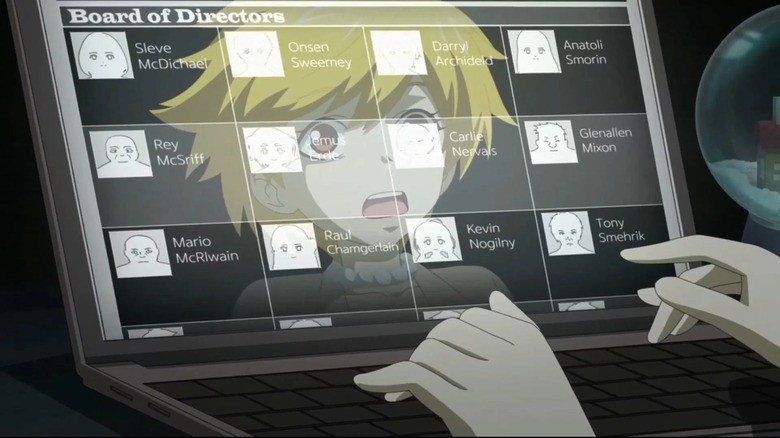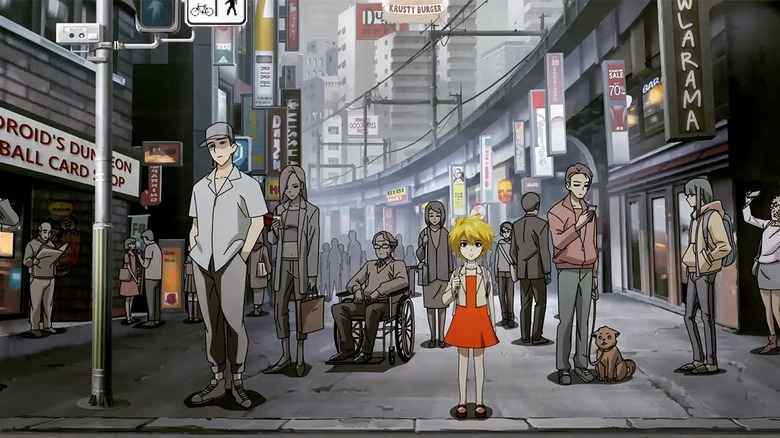Lisa's Victims In The Simpsons' Death Note Parody Were A Deep Cut Reference To Video Game History
On October 30, Fox aired the newest "Simpsons" Halloween special, "Treehouse of Horror XXXIII," the sixth episode of the long-running show's 34th season. The longevity of "The Simpsons" has never been something to scoff at, but the fact that the show is still innovating and connecting to different generations' sense of humor is even more impressive.
The second segment in this year's "Treehouse of Horror" received a lot of attention from fans leading up to the episode's release by parodying the well-known, edgy horror anime series "Death Note." The episode emulated the style of "Death Note" perfectly, even down to commissioning the animation house that animated the original anime, the South Korean studio DR Movie.
"Death Tome" follows Lisa Simpson gaining possession of the titular Death Tome, allowing the user to kill any person and also choose their cause of death by writing. Haunted by a Shinigami (humorously named Steve Johnson, poking fun at the irony of this Western take on the source material), Lisa should be sent into a crisis of morality, but she instead soon discovers her ambitions to utilize the Death Tome to become an environmentalist hero.
After using the Death Tome to prevent Mr. Burns from spearheading his ice-cap-melting Globo-Warm corporation, Lisa searches the web for the board of employees at Globo-Warm and decides to go on a murder spree — to save the planet, of course. If you are online enough and were looking closely at the names listed on the Globo-Warm website, they might have been familiar. That's right, the Globo-Warm employees were named after the American roster in the Super Famicom game "Fighting Baseball."
A generational shift in the writers' room
"Fighting Baseball" was the original Japanese version of what would be localized into "MLBPA Baseball" for the Super Nintendo in the United States. While the game would be licensed to include the names of real baseball players in its localization, the original Japanese version did not have that same luxury. As a result, the game designers had to come up with some "American-sounding" names to fill the American rosters. It might lack the same virality today as it had in the past, one particular name, Bobson Dugnutt, became a meme circa 2007, highly reminiscent of poorly translated text from a retro game turned catchphrase, "All your base are belong to us," from "Zero Wing."
Sure, this is a fun little easter egg on its own, but this niche internet reference in a parody of an early to mid-2000s anime series feels emblematic of a shift in demographics "The Simpsons" writer's room. Most of the older writers who have been part of the show since the beginning have made their way out, with the exception of Al Jean. As a result, newer generations of young writers are breathing life back into the show in their own unique ways. Parodying "Death Note" got so much online attention because it felt like a swing in a direction the show wouldn't have gone just a decade ago.
Some fans have dubbed season 33 of "The Simpsons" as a return to former glory, celebrating the deeply satirical and subversive cartoon properly finding its footing in a modern context. Deep cut and terminally online jokes like this could become much more of a normal occurrence in the future. Maybe "The Simpsons" will have a Gen Z resurgence one day? After all, there's nothing wrong with a little evolution.

